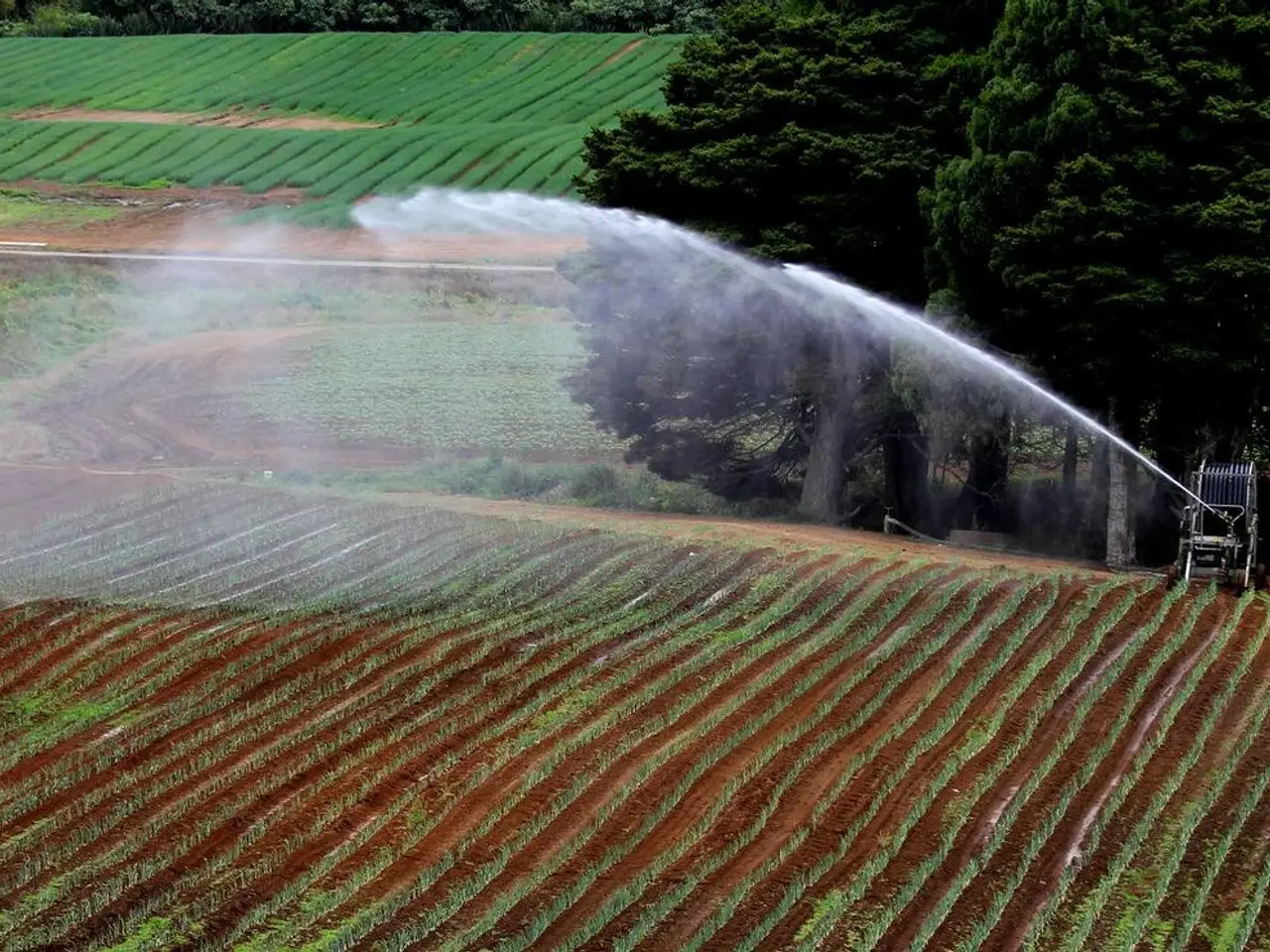Controversy revolves around Duplomb law, pitting intensive farming method against agroecological farming techniques in agricultural discourse
In the heart of France, a contentious debate is unfolding over the Duplomb Law, a piece of legislation that has sparked widespread controversy involving public health, sustainable agriculture, agroecological practices, and environmental health.
The Duplomb Law, adopted on July 8, aims to facilitate the expansion or creation of intensive livestock buildings or water storage for crop irrigation by reintroducing the pesticide acetamiprid, which was banned in France in 2018. Supporters argue that this move will help reduce France's dependence on imported products that do not meet its standards, while opponents view it as a regression in environmental governance, potentially leading to increased pesticide-related harms.
The debate revolves around several key aspects. One of the most contentious is the legalization of a banned pesticide. The Duplomb Law permits the use of acetamiprid, which attacks pest neural systems but poses health risks to humans consuming treated crops, raising concerns about cancer, neurological, and reproductive health problems. Experts and organizations such as the French League Against Cancer warn that the law increases pesticide exposure not only for farmers but also for rural communities and the wider population.
Environmental and public health risks are another major concern. Only about 5% of neonicotinoids are absorbed by crops, with the remainder contaminating soil, water, and food chains, and persisting in the environment for long-term exposure. This has sparked fears about the impact on biodiversity and the long-term health of both humans and the environment.
The Duplomb Law is also criticized for undermining France’s climate and agroecological commitments. Critics argue that it facilitates intensive farming practices and loosens restrictions that previously promoted biodiversity and reduced chemical inputs. This is viewed as contradicting the European Green Pact and France’s environmental policies.
Despite the widespread opposition, the law has found support among some political figures, particularly right-wing and centrist politicians. They defend the law as necessary to level the competitive playing field between French and European farmers, arguing that regulatory tightening has been punitive and burdensome, impacting farmers’ productivity and profitability.
The debate has triggered massive public opposition, including a petition surpassing 1.7 million signatures requesting the law's repeal and prompting a parliamentary debate. This groundswell of civil society resistance underscores the conflict between agricultural industry interests and environmental/public health advocates.
On the other hand, supporters of the law, such as the FNSEA, the largest agricultural union, and its allies in the Young Farmers association, view it as a step to revive French agricultural production. They argue that agroecological practices are not practical solutions for the majority of French farmers who practice an intensive, productivist model.
However, proponents of agroecological practices propose alternatives such as organic farming, agroforestry, diversification of crops, grazing in orchards, and biological control as more sustainable solutions. They argue that reducing the use of agrochemicals not only improves soil and water quality but also reduces the workload for farmers.
In contrast to the intensive, productivist model, which represents about 90% of farmers, agroecological practices aim to reduce undesirable consequences, work with nature rather than against it, and improve soil and water quality, capture carbon, and increase productivity. The IPBES report suggests that these types of agriculture improve soil and water quality, capture carbon, and increase productivity.
As the debate continues, it is clear that the Duplomb Law represents a significant shift in France's agricultural policies and raises important questions about the balance between economic concerns and environmental protection. The future of sustainable and agroecological agriculture in France hangs in the balance.
[1] Le Monde [2] Greenpeace [3] Le Figaro [4] Cancer.org
- The Duplomb Law, a controversial piece of legislation in France, has sparked debates over public health, sustainability, and environmental concerns, with opponents labeling it a regression in environmental governance due to potential increased pesticide-related harms.
- The legalization of the pesticide acetamiprid, which attacks pest neural systems but poses health risks to humans consuming treated crops, is one of the contentious issues, raising concerns about cancer, neurological, and reproductive health problems.
- Critics argue that the Duplomb Law, by facilitating intensive farming practices, undermines France’s climate and agroecological commitments, contradicting the European Green Pact and France’s environmental policies.
- The future of sustainable and agroecological agriculture in France is uncertain, as the Duplomb Law represents a significant shift in agricultural policies, leading to questions about the balance between economic concerns and environmental protection.
- The debate has attracted attention from various organizations, including Le Monde, Greenpeace, Le Figaro, Cancer.org, and many others, highlighting the importance of balancing agricultural productivity with environmental and public health considerations.




